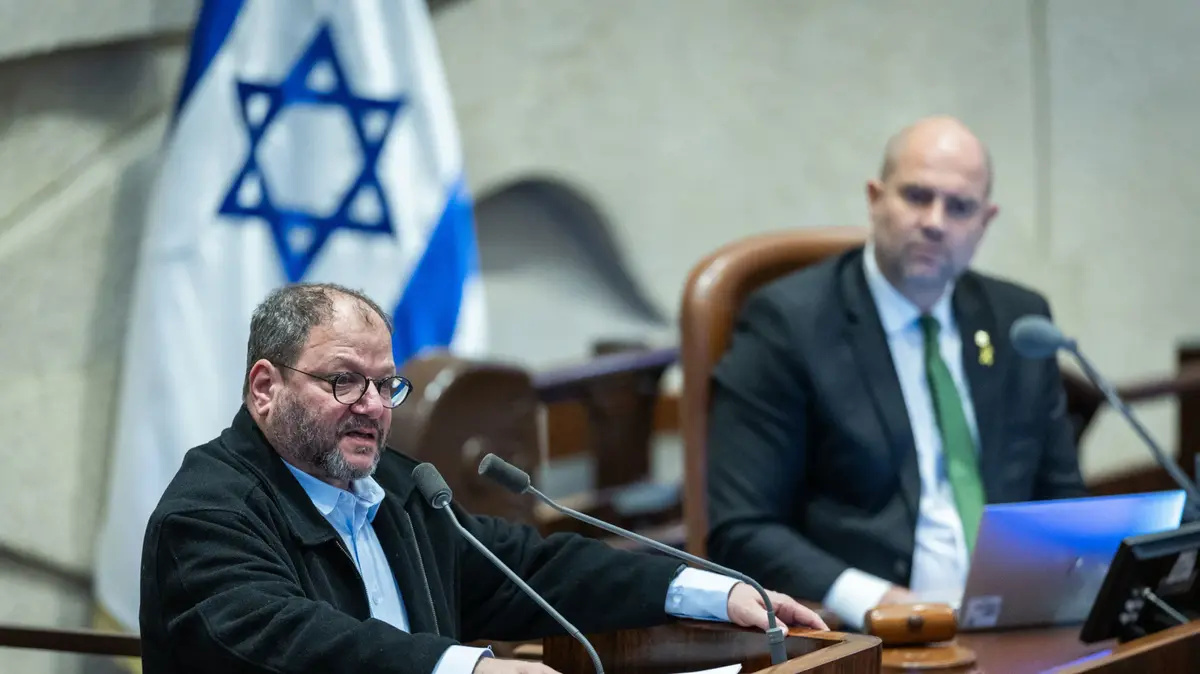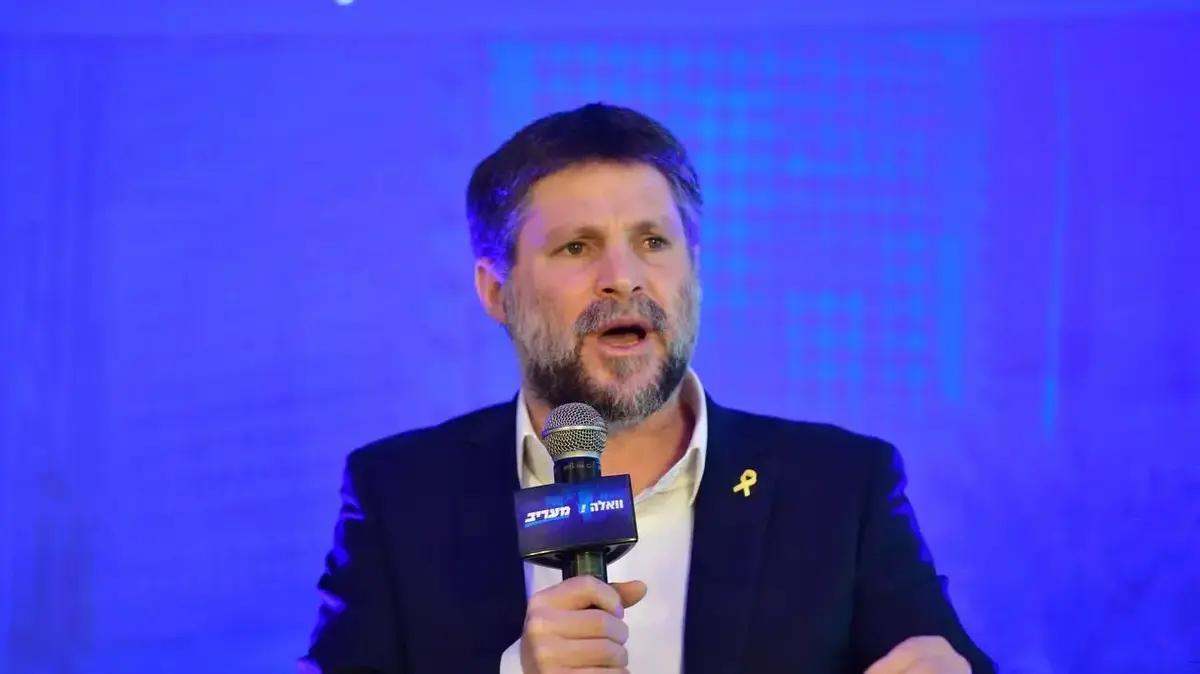Business
Opinions
Studies also back up: The calls to the Farkash family did not grow in a vacuum
The verbal violence in front of the Farkash family home is a step up in the polarization of the people, but very unsurprising.
A recent study in the US found that the rhetoric of leaders also greatly influences citizens' behavior. The main problem: We hate the other side more than we love ours
Tags
violence
Hate
Dana Pan Luzon
Thursday, 19 November 2020, 12:02
Share on Facebook
Share on WhatsApp
Share on general
Share on general
Share on Twitter
Share on Email
0 comments
USA: Apple, Google, Amazon and Facebook were questioned in Congress about ...
Girl parents are divorcing
Carmel market traders were fined after opening stalls ...
Dozens of self-employed people demonstrate demanding the opening of street shops ...
Men wait for their wives while they shop
A motorcyclist flies into the sewer after an accident
Auditor's report on the corona crisis: various data on the situation ...
Documentation: A hearing call from a branch manager in the Yochananoff chain who claims ...
Netanyahu at the Corona Laboratory at Ben Gurion Airport: If there is no improvement, ...
Health Minister Yuli Edelstein in Eilat: The city was dying ...
Biden appointed Ron Klein as chief of staff at the White House: "Man ...
In the video: Netanyahu supporters demonstrate in front of a family home in Caesarea (Walla! NEWS system)
Hatred in Israel is only growing, and the more it raises its head, the more ugly it is.
The event at the Farkash family home is one of many events that reflect hatred against a political and ideological background, events that have been recurring at too high a pace recently and reveal that human boundaries are dissolving.
The reason for this is simple: we hate more than we love.
New research in the United States sheds light on a reality that is becoming increasingly familiar to us as well.
The division, the polarization and the hatred are only growing.
The study was published in the prestigious Science magazine at the end of last October under the headline "Political Partisanship in America" and one conclusion to it is very clear: "Republicans and Democrats hate each other more than they love their side."
The researchers added: "When ideals and policies are less important than enemy control, government functioning becomes impaired."
The study claims that such a reality is a danger to democracy, and its results seem to be compatible with us as well.
This is a global trend and it is worrying.
More on Walla!
NEWS
25 years after the assassination, Netanyahu has not yet learned his lesson
To the full article
More hate than love.
Demonstration in support of Donald Trump (Photo: Reuters)
Whenever a political hate event strikes the streets, the public waits for responses, mostly from ministers and also from the prime minister.
When the incident is serious and dangerous for us, the public is waiting for the condemnation of its leaders and it is right, because studies have found that there is a direct link between the way leaders express themselves and the rise in violence.
The study published this year found that hate speech and divisions are fuel for violence.
He reveals that there are many leaders in the world whose form of expression, rhetoric and speeches are from the divisions and divisions in society.
The study examined hundreds of countries between 2000 and 2017 and found that hate speech and divisions were prominent in countries such as Russia, Colombia, Ukraine and, yes, Israel as well.
In countries where there is party hate rhetoric there is also an increase in violence - "domestic terrorism" is defined by the study.
For example, since the beginning of Donald Trump's tenure in 2016, domestic violence in the United States has more than doubled.
Much criticism has come up recently due to the remarks of ministerial leaders and the prime minister.
Even on the 25th anniversary of Rabin's assassination, the prime minister's speech provoked frustration among the citizens, when he addressed the Knesset memorial service in his speech that there was also incitement against him.
Precisely in the moment when there is room to condemn the murder of political hatred and unite the people, he put himself into the picture.
The place and the moment were supposed to be filled only with the memory of Yitzhak Rabin and a large part of the public did not see it favorably.
The oil spilled into the fire again.
He put himself into the equation and upset many people.
Netanyahu in a speech in memory of Rabin (Photo: Government Press Office)
Dana Pan Luzon (Photo: Nir Keidar)
In the latter case, too, the network erupted, with the prime minister's reaction to the ugly incident in front of the Farkash family's home and the reaction that came out on behalf of the Likud.
The message was once again similar within us to its predecessors, when the prime minister introduced himself, and not only condemned the violence and embarrassing behavior.
The message on his behalf also contained a reference to the fact that it is forbidden to demonstrate less than 300 meters from his house.
The message condemns and addresses the attacking side.
The Prime Minister spoke about the limits of bereavement and pain that should not be directed at them, but also gave an opening to those who attacked, as it is forbidden from such a distance to demonstrate on his home.
Leaders in their rhetoric have tremendous power in shaping social reality into unity or violence.
The studies are uniform about this.
The Prime Minister is the important and central leader.
Politicians and other public figures did respond appropriately, but it should be noted that there were others who reacted disrespectfully and continued to ignite the fire of hatred, this fire that continues to burn and no one has put it out.
"Words are not just words. Hate after is greater than love for the inner group, but it is very important to remember that people learn to hate, and if it can be taught - it can also be taught to love" - Nelson Mandela.
The author holds a bachelor's degree in communication, economics and psychology.
Share on Facebook
Share on WhatsApp
Share on general
Share on general
Share on Twitter
Share on Email
0 comments














